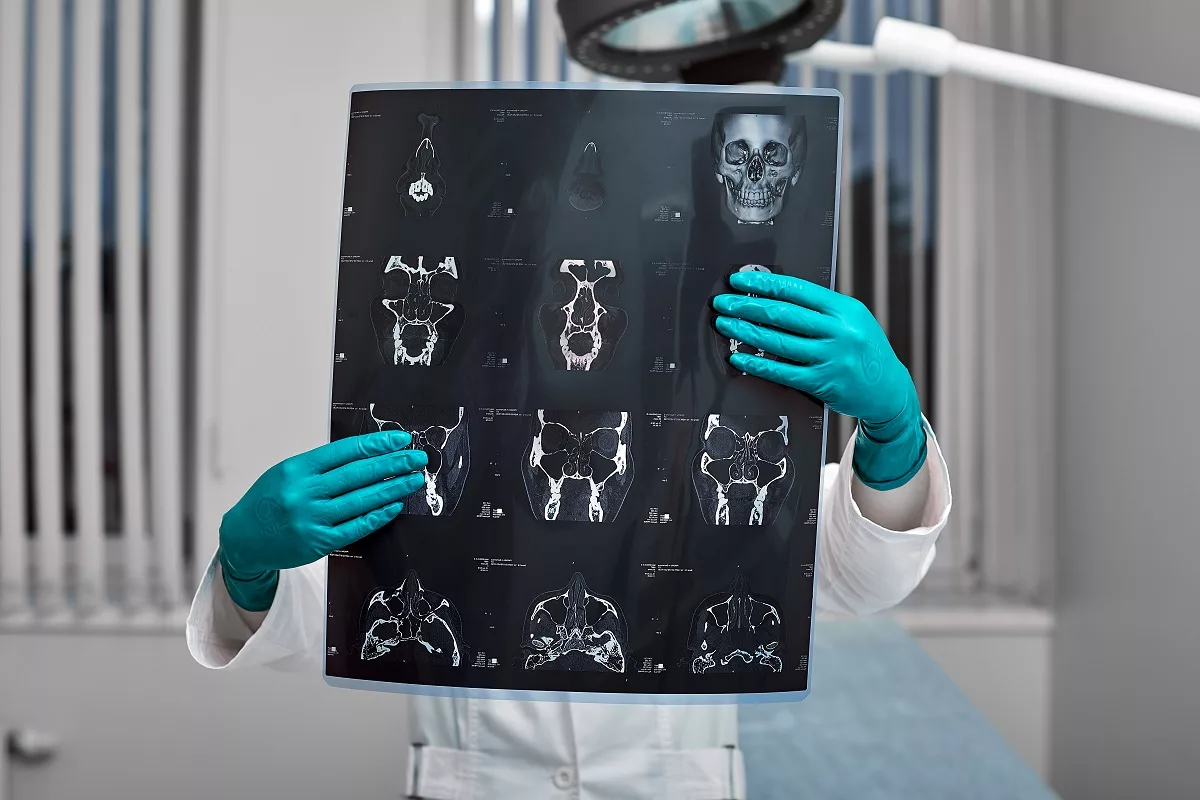A movement condition that develops when you administer antipsychotic medications or other types of medicines is called tardive dyskinesia (TD). Once it occurs, there is no treatment that can reverse this condition. That’s why the treatment goal is to reduce the symptoms and improve your quality of life. Sometimes, people may develop TD years after taking antipsychotic medicines. However, it may happen after a short period of taking antipsychotics, especially in people over 65 years old.
According to some research, about 20% of people who take first-generation antipsychotic medicines develop TD. Nowadays, there are no studies about the risk of developing TD with other medications, which makes it difficult to estimate how common TD occurs.
Symptoms
The symptoms are often different among people because they may affect different parts of the body. It may affect your tongue, facial muscles, neck, trunk muscles, and limbs. Check below some facial involuntary movements:
- Lip-smacking or sucking motions with the mouth
- Frowning or grimacing
- Sticking the tongue out or against the inside of the cheek
- Chewing movements
- Puffing the cheeks
- Blepharospasm (fast eye blinking)
However, TD may cause other involuntary movements. For example:
- Repetitive finger movements
- Walking with a duck-like gait
- Akathisia (this is an inability to remain physically still)
Previous symptoms often range from mild to severe. It depends on your age, overall health, and the severity of TD.
In some cases, physicians may describe TD symptoms as:
- Dystonia (involuntary muscle contractions)
- Myoclonus (sudden muscle movement)
- Tics (habitual contractions of the muscles that often occur in the face)
- Buccolingual stereotypy (frequent movements of the mouth)
In any case, if you develop any of the previous symptoms, do not hesitate to visit a doctor.
Causes
While healthcare professionals do not know what exactly causes TD, they suspect it occurs due to the use of Dopamine receptor-blocking medicines (also known as Dopamine agonists). TD may occur even after short-term use of these medications, but people who take these medicines for long periods are more prone to develop it. Moreover, tardive dyskinesia may happen even due to interrupting, changing, or reducing medicines.
The Dopamine receptors in the brain may become very sensitive if you are taking Dopamine agonists for long periods. Especially in the basal ganglia (the part of the brain that controls movements). Involuntary movements are often caused by excess Dopamine or extra-sensitive receptors.
Additionally, Serotonin, Acetylcholine, and GABA may also be involved in the development of TD. That’s why healthcare professionals think other medicines may also contribute to this condition.
You may develop TD if you take the following medicines. These include antipsychotic medicines (also known as neuroleptics), anti-nausea medicines (including Metoclopramide), and some antidepressants. Rarely, people who take Lithium, antiseizure medications, antihistamines (such as Hydroxyzine), or antimalarials may develop TD.
Antipsychotic Medicines
These medications are primarily used to treat schizophrenia. Hence, these medicines are the most common cause of TD. It is considered that the first generation of these medications is more likely to cause TD than the second generation. Check below some examples of first-generation antipsychotics:
- Chlorpromazine
- Fluphenazine
- Haloperidol
- Perphenazine
- Prochlorperazine
- Thioridazine
- Trifluoperazine
Anti-nausea Medicines
Another medicine that may lead to TD is Metoclopramide. Primarily, it is used to treat GERD and diabetes-related gastroparesis. However, this anti-nausea drug is strongly linked to tardive dyskinesia. Do not take Metoclopramide for more than 12 weeks without a doctor’s recommendation because the risk of developing TD significantly increases.
Antidepressants
This group of medicines is mainly used to treat depression and other mental health disorders, including anxiety, obsessive-compulsive disorder (OCD), and others. Antidepressants increase the risk of TD in people over 65 years old. In other cases, these medicines cause TD less commonly than antipsychotics. Check below some antidepressants often associated with TD:
- Trazodone (serotonin modulator)
- Amitriptyline, Clomipramine, and Doxepin (tricyclic antidepressants)
- Fluoxetine and Sertraline (SSRIs)
- Phenelzine and Rasagiline (MAOIs)
- Selegiline is often associated with tardive dyskinesia if it is taken in combination with Levodopa
Antiseizure Medicines, Lithium, and Antihistamines
Commonly, Lithium (used to treat bipolar disorder), antiseizure medicines (such as Carbamazepine and Lamotrigine) are used to treat and prevent seizures, and antihistamines (particularly Hydroxyzine) are also associated with TD if they are used for long periods. The risk increases even more if previous medicines are taken after 65 years old.
Antimalarials
Some antimalarial medicines are also associated with TD, especially if they are used for long periods. These include Amodiaquine and Chloroquine.
Risk Factors
While it is difficult to determine what exactly causes TD, healthcare professionals have identified some factors that could elevate your risk of developing this condition. For example:
- Age – Those who are over 40 years old can develop TD. Older adults (over 65 years old) are at higher risk of age-related neurological changes.
- Sex – While TD is mostly diagnosed in women, post-menopausal females are at higher risk of developing this condition, especially if they take antipsychotic medicines for a long period.
- Race – Some recent studies have shown that Black Americans are more prone to develop TD than white Americans.
- Bipolar disorder – The risk for TD of people with bipolar disorder who administer antipsychotics is higher compared to those who administer the same medicines but do not have this mental health condition.
Nowadays, researchers continue studies on genetic factors that may contribute to TD.
What Are The Potential Complications of Tardive Dyskinesia?
People with TD may also experience some complications, especially without treatment. These include:
- Problems with social and emotional well-being
- Layngospasm
- Problems with the diaphragm
- Breathing problems that can be life-threatening
- Pain
This article does not contain a full list of TD complications. However, you can consult with your doctor about ways to reduce the risk or prevent these complications.
How to Prevent Tardive Dyskinesia?
Unfortunately, there is no way to prevent this condition because not everyone who takes antipsychotic medicines develops it. However, you can take some steps to reduce the risk. For example:
- Do not take antipsychotic medications without a doctor’s recommendation, or do it for the shortest period possible
- Consult with your physician about other medicines known to cause TD before using them
- Have routine screenings for movement symptoms while using antipsychotic medications
Diagnosis
First, doctors will perform a physical and neurological examination to check for irregularities linked to the disease. Thereafter, they may also ask some questions about your symptoms and medical history. Usually, when doctors suspect TD, you may be referred to a neurologist, psychiatrist, or movement disorder specialist.
To confirm this disorder, physicians often refer to the Diagnostic and Statistical Manual of Mental Disorders (DSM-5). According to DSM-5, a person has TD if the symptoms last at least one month after stopping the medicine.
Doctors may also perform some tests to exclude other conditions that cause similar symptoms (such as Huntington’s disease). These include laboratory tests, imaging tests, such as CT (computerized tomography) scans or MRI (magnetic resonance imaging) scans, and others.
Treatment
The studies on TD treatment are inconsistent because some of them notice improvements when people decrease the dose or even stop taking antipsychotics, while others show no improvements. Moreover, physicians may recommend reducing the dose of antipsychotics if it is possible, but it does not guarantee that it will reduce the symptoms. The only thing doctors can do is to recommend second-generation antipsychotics instead of first-generation.
In addition, physicians may also recommend VMAT inhibitors (including Deutetrabenazine and Valbenazine) to treat the TD symptoms along with changing the dose or type of an antipsychotic medicine. According to some research, these medications are safe and effective.
Frequently Asked Questions
Is tardive dyskinesia reversible?
In most cases, TD is chronic (long-term). While medicines can lessen the symptoms and improve your quality of life, they cannot cure or reverse it.
When should I go to the ER?
Call 911 right away or go to the nearest emergency room (ER) if you develop shortness of breath.
Can stress cause tardive dyskinesia?
Yes, prolonged extreme stress can cause this condition or worsen existing symptoms. While stress does not directly cause TD, it may contribute to this disorder in people who use antipsychotics for long periods. Ask your healthcare provider if you have additional questions.




